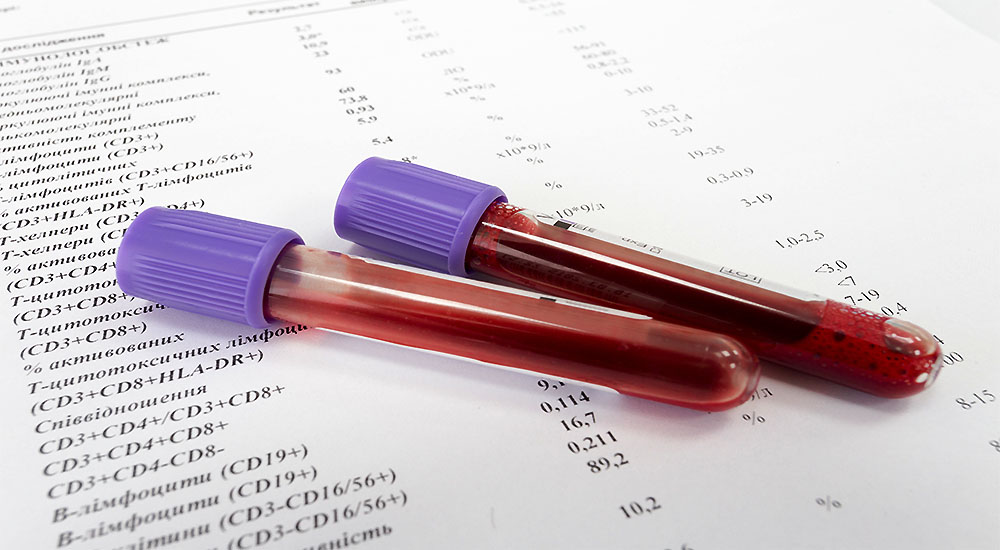Are Gluten & Dairy a Cause for Autism Spectrum Disorders?

Are Gluten & Dairy a Cause for Autism Spectrum Disorders?
Article by Dr. Vikki Petersen, written for Simply Gluten Free Magazine
Many medical doctors, nutritionists, dietitians, and parents alike swear they have witnessed positive results in treating autistic children. In some cases, those results have claimed to be miraculous, through the elimination of gluten and dairy.
There are documented cases where recoveries have occurred to such a degree that the label of autism spectrum was completely removed. Yet controversy and skepticism abound regarding these dietary interventions. Granted there are other factors that contribute to these conditions, but with such compelling evidence can we at least take a serious look at whether gluten and dairy can cause autism and its related spectrum disorders?
It’s well established that the proteins in gluten and milk create neurological effects.
Gluteomorphins and caseomorphins are substances that affect the “morphine-like” receptors in the brain and create cravings. They are formed during the digestion of gliadin (proteins present in wheat and other grains) and casein (proteins present in dairy products) respectively.
In an unaffected individual, these substances are eliminated through the gut with no untoward effects. However, for some individuals, like those with a leaky gut (a small intestine that lacks normal barrier function), these “morphine-like” substances leave the gut and enter the bloodstream. They then travel to the brain and nervous system where they can cause symptoms of autism and autism spectrum disorders.
How and why do dairy and gluten proteins leave the gut before being properly digested?
Leaky gut is the explanation and it is best understood as the phenomenon that occurs when the small intestine has lost the integrity of its “gatekeeper” system. This is a system designed to control the measured outflow of properly digested nutrients into the bloodstream.
Do children with autism spectrum disorders suffer from leaky gut significantly more often than healthy children? If so, we could really delve into the importance of preventing and healing a leaky gut as an in-road with some of these children.
In a “chicken or egg” discussion, which came first? Is it autism or the leaky gut responsible for irritation to the nervous system?
A recent study published in BioMed Research International (entitled “Antibodies Against Food Antigens in Patients with Autistic Spectrum Disorders”) supports not only the leaky gut theory but also the ill-effects created by gluten and dairy.
162 children suffering from autism spectrum disorders (ASD) and 44 healthy children were tested. Those with ASD showed leaky gut 26% of the time, as opposed to healthy children with a 2% incidence.
Did kids with gluten sensitivity have a greater incidence of autism?
Children with celiac disease were ruled out of the study. The incidence of celiac disease is not found to be elevated in ASD over the healthy population. However, because several studies do show some positive association between a gluten-free diet and improvement in symptoms and social behaviors, the authors did want to check out the theory that, for some children, their ASD symptoms exist as part of the spectrum of gluten sensitivity.
Gluten sensitivity, far and above celiac disease, presents with a very wide variety of symptoms, many neurological.
Do these neurological complaints extend to ASD symptoms? That is what these researchers sought to prove.
Those children with ASD did show immune reactions to gluten (and dairy) at a higher incidence than the control. The dairy reactions were deemed “significantly” higher.
Does a leaky gut contribute to autism?
The next question involves the association of leaky gut with autism. It’s believed that a leaky gut and leaky brain may be involved in the genesis of ASD.
Studies support that autistic children could very well have impaired gut permeability but it is not completely confirmed. The researchers set out to evaluate this.
They asked: Could a leaky gut predispose autistic children to food reactions and immune response, such as that seen with gluten and dairy reactions.
An earlier study did find a higher incidence of leaky gut in non-celiac autistic children.
The leaky gut improved substantially once a gluten-free, casein-free diet was implemented.
Autistic children show more reactions to gluten and dairy than unaffected children
Blood tests do reveal a higher incidence of gluten and dairy reactions in the immune systems of ASD children.
Autism and ASD have a genetic component. But it is the interplay of genetics and the environment that initiates all genetic diseases and conditions. Having the genes for a condition is insufficient to have that condition manifest.
This is exciting news because it means that we actually have some control over the initiation of genetic conditions.
Are gluten and dairy environmental “triggers” in susceptible children?
If the above is true, according to the researchers, removing these triggers could be an excellent nutrition therapy for ASD.
Is a healthy gut at the root of autism prevention?
More and more, we realize that it is the health of the gut—which houses 70-80% of the immune system—that controls the initiation of many of these genetic conditions.
A healthy robust gut and immune system could very well prevent the initiation—or “turning on”—of a genetic disease. It is this understanding that resulted in the researchers going down this path of leaky gut. They wished to discern whether dietary antigens (foods causing a negative response) could permeate a leaky gut and stimulate the immune system negatively.
62% of autistic children in the study had GI complaints
It was noted that 100 of the ASD children enrolled in the study suffered from gastrointestinal complaints. These including constipation (27%), diarrhea (8%), pain, gas, alternation of constipation/diarrhea, and reflux (26%). As mentioned earlier, not only were children with celiac disease excluded, but so too were any children with known inflammatory bowel disease, liver disease, or known food intolerances.
Those children with ASD consuming a regular gluten and dairy containing diet were more frequently found to have a positive AGA (anti-gliadin antibodies) and DGP (deamidated gliadin peptides) blood test as compared to healthy children on the same diet.
Both tests, when positive, reveal a negative immune system reaction to gluten. The AGA IgG test was found to be elevated irrespective of a leaky gut, but it improved when the child was put on a gluten-free diet.
26% had a leaky gut as compared to 2% of the healthy controls
The researchers found a large percentage (25.6%) of the children with ASD had impaired intestinal barrier function, a leaky gut. And, not surprisingly, the gluten- and casein-free diet regimen normalized the barrier impairment.
The reason IgG (immunoglobulin G—a part of the blood’s immune system) was tested versus IgA (immunoglobulin A— a part of the mucosal immune system found more prevalently in the saliva and intestinal lining) was that other studies have confirmed that autistic children tend to have low to normal IgA levels compared to healthy controls.
With low IgA, often seen in celiac and gluten-sensitive patients as well, any IgA blood tests can be falsely negative. In other words, using a test that measures the strength of a response of a part of the immune system that is weak, will get you a false lab result.
Food reactions and a leaky gut at the core
Not only could the digestive problems in these children be explained by a food sensitivity such as gluten, but so too could the leaky gut and imbalanced microbiota (the probiotic population) be explained with this reaction to gluten.
In an excellent summary, the authors state that the inflammatory response seen in ASD could predispose children to become sensitized to common dietary proteins such as gluten and dairy, which in turn lead to gut inflammation and aggravation of behavioral symptoms.
Continuing, the authors discuss that the sensitivity of some autistic children is likely secondary to bioaccumulation of toxicants that then opens the door to gluten and/or dairy sensitivity. Gluten- and casein-free diet would diminish the toxicant burden and thereby improve reactions.
The Final Analysis
- The prevalence of celiac disease is not increased amongst children with ASD.
- Gluten can be responsible for causing immune induced GI symptoms despite no celiac disease being present.
- The immune system of a subgroup of ASD is likely triggered by gluten through a gluten sensitivity response.
- Those subjects affected by gluten sensitivity frequently display behavioral symptoms.
- The immune system of a subgroup of ASD is also likely triggered by casein.
- There is a great variation in the appearance of ASD. This variation could be related to anti-gliadin antibody response, a deamidation gliadin peptide being positive, or a leaky gut.
- Testing for food sensitivities could be useful in identifying those children with ASD for whom implementation of a gluten-free, casein-free diet would be therapeutic nutritionally.
The rise of ASD in our country is concerning
The increased incidence is only explained by environmental influences, as genes take much longer to change.
We know that gluten is indigestible for humans.
We know that dairy is highly pro-inflammatory food.
It is beyond clear that both foods can negatively influence the nervous system.
While gluten and dairy are likely not the only influencers of ASD, it seems probable that they play a role.
We’ve seen good success with dietary change and GI healing
I have seen good success with such children once a gluten-free, dairy-free diet was implemented, along with addressing other common secondary effects such as a leaky gut, probiotic imbalance, nutritional deficiencies, enzyme imbalances, cross-reactive foods, and infections.
The list may sound long but all factors are not present in all affected children. The key is to find out what the particular stressors affecting each child are.
Drugs for autism are dangerous
Drug therapy is frequently offered as an answer however studies indicate it is not highly effective and may be fraught with dangerous side effects.
Evaluating lifestyle, dietary, environmental, and genetic factors is most likely a more effective first step toward heading in the right direction.
Do you need help with your health?
We have the diagnostic and testing tools, the clinical experience, and a different medical approach to discovering the root cause of why you have the symptoms that are bothering you. As long as you are ready to make some dietary and lifestyle changes, we can help you. We will "hold your hand" through the changes, step by step, to make each step an easy one. We are located in Clearwater, FL, at 1000 S Ft Harrison, at the corner of Ft. Harrison Ave. and Magnolia St. There is plenty of parking space directly accessible from Ft Harrison. If it is not convenient for you to come to Root Cause Medical Clinic, we offer telehealth/telemedicine consultations to residents of certain states. Call us for details.
Contact us for a Consultation – Call 727-335-0400

Dr. Vikki Petersen DC. CCN
Founder of Root Cause Medical Clinic
Certified Functional Medicine Practitioner
Dr Vikki Petersen is a public speaker, author of two books, several eBooks and creates cutting edge content for her YouTube community. Dr Vikki is committed to bringing Root Cause Medicine and its unique approach to restoring health naturally to the world.
Ask a Doctor
Have a health concern you'd like to speak with a doctor about? Or just want clarity on a subject? Ask Us!
Featured Articles
Popular Stories
References:
BioMed Research International. 2013;729349.
Published online 2013 August 1. Laura de Magistris, Annarita Picardi, Dario Siniscalco, Maria Pia Riccio, Anna Sapone, Rita Cariello, Salvatore Abbadessa, Nicola Medici, Karen M. Lammers, Chiara Schiraldi, Patrizia Iardino, Rosa Marotta, Carlo Tolone, Alessio Fasano, Antonio Pascotto, and Carmela
Bravaccio. Antibodies against Food Antigens in Patients with Autistic Spectrum Disorders Trends in Pharmacological Sciences. 2008;29(8):375–382. Theoharides TC, Doyle R, Francis K,
Conti P, Kalogeromitros D. Novel therapeutic targets for autism
European Journal of Pharmacology. 2011;668(supplement 1): S70–S80. de Theije CGM, Wu J, da Silva SL, et al. Pathways underlying the gut-to- brain connection in autism spectrum disorders as future targets for disease management.
Pediatrics. 2010;125(supplement 1): S1–S18. Buie T, Campbell DB, Fuchs GJ, III, et al. Evaluation, diagnosis, and treatment of gastrointestinal disorders in individuals with ASDs: a consensus report.
Pediatrics. 2010;125(supplement 1): S1–S18. Buie T, Campbell DB, Fuchs GJ, III, et al. Evaluation, diagnosis, and treatment of gastrointestinal disorders in individuals with ASDs: a consensus report.
Chang Gung Medical Journal. 2009;32(4):459–465.Hsu CL, Lin CY, Chen CL, Wang CM, Wong MK. The effects of a gluten and casein-free diet in children with autism: a case report.
Nutritional Neuroscience. 2010;13(2):87–100. Whiteley P, Haracopos D, Knivsberg A-M, et al. The ScanBrit randomized, controlled, single-blind study of a gluten- and casein-free dietary intervention for children with autism spectrum disorders.
Nutritional Neuroscience. 2012;15(2):85–91.Pennesi CM, Klein LC. Effectiveness of the gluten-free, casein-free diet for children diagnosed with autism spectrum disorder: based on parental report.


